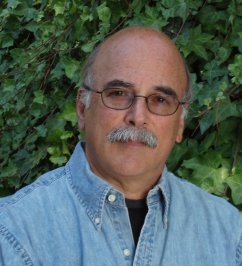



 David Brodzinsky, PhD
Adoption for Clinicians Web Lecture~ 4 Hrs David Brodzinsky, Ph.D. is Professor Emeritus of Developmental and Clinical Psychology and past Director of the Foster Care Counseling Project at Rutgers University. He also was a founding director and served for 10 years on the Board of Directors of the Evan B. Donaldson Adoption Institute in New York City. Currently, he is Research and Project Director for the Institute. For the past three decades, his research and scholarly writing has focused primarily on issues related to the adjustment of adopted and foster children and their families. He is especially well known for his research on developmental and family issues related to adopted children’s adjustment. Research indicates that adopted and foster children are significantly over-represented in both outpatient and inpatient mental health facilities, as well as in special education settings. For example, although non-related adoptees constitute approximately 2% of the population of children in the U.S., they represent about 5% of children seen in outpatient mental health settings, 10-15% of children in inpatient & residential treatment centers, and 6-9% of children receiving special education because of learning disabilities. The vast majority of children being adopted today are coming from the child welfare system and from abroad. In both cases, these youngsters often have experienced significant prenatal and postnatal trauma and are frequently in need of mental health and special education interventions; in fact, the rate at which they present with clinical, developmental, and academic problems is even greater than the figures noted above. Although child therapists routinely see adopted and foster children in their clinical caseloads, they generally receive no specific training in graduate school to understand the unique interplay of biological & environmental factors which impact on these youngsters; nor do they receive training in the unique psychodynamics found in adopted & foster children or in specific interventions that target those dynamics. Consequently, too many of these children and families receive less than adequate services from the professionals with whom they consult. This class begins to address these issues by describing contemporary changes in adoption and foster care, and adjustment outcomes for these children; biological factors and environments associated with the adjustment of adopted and foster children; and family lifecycle issues in adoption and foster care. The class will also cover the role of loss and grieving in the adjustment of adopted and foster children, assessment issues in working with adopted and foster children and their families, and interventions targeting adoption and foster care related loss. Class Objectives 1. Participants will understand: the way in which adoption &/or foster care impacts on the child and family. 2. Participants will be able to describe factors which influence patterns of adjustment in adopted & foster children 3. Participants will be able to describe factors which influence patterns of adjustment in adopted & foster children 4. Participants will learn how to integrate issues related to the children’s unique history into a well developed assessment process 5. Participants will learn how to target adoption and foster care issues in clinical interventions. |
|
